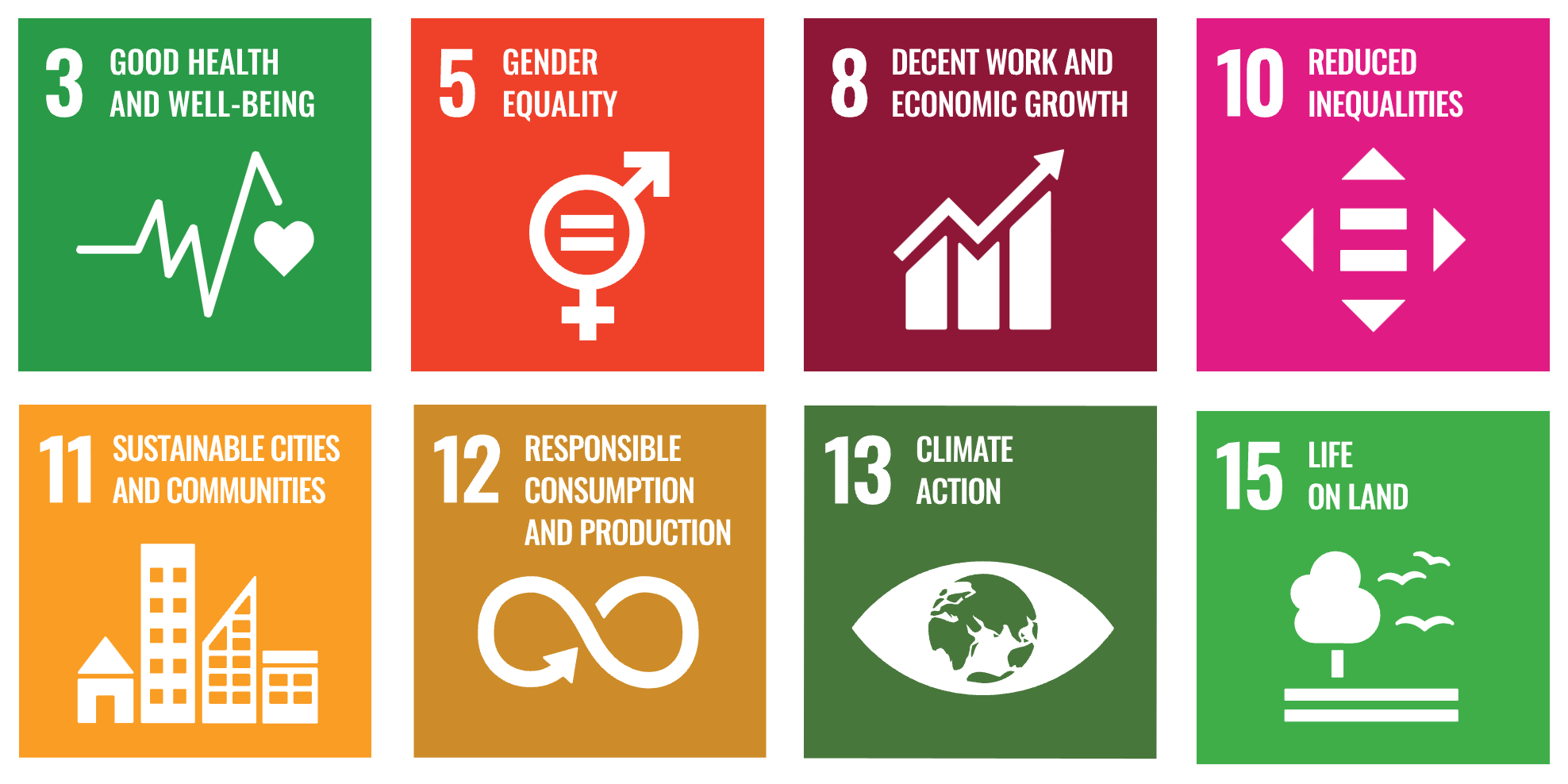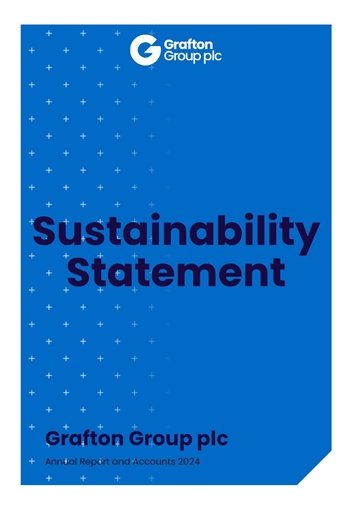Building a more sustainable future
The building and construction sector has a big impact on the world. It provides people with homes to live in, gardens to enjoy, leisure facilities to relax in and much more. However, all of these activities can emit carbon emissions, impact nature and affect people’s lives.
As a building materials distributor and DIY retailer, we are a core part of the building materials and construction sector and we want to play an important part in building a more sustainable future for all.
Grafton’s sustainability strategy aims to address the material environmental, social and governance (ESG) issues as well as other key issues that are very important to our businesses, colleagues and customers.
Our sustainability strategy is supported by our five priority areas:
Reducing our impact on the environment.
The climate crisis is one of the most important issues facing society and its impacts are clear to see. With summer heat records, flash flooding in many countries, devastating wildfires and record reduction in sea ice in Antarctica. The effects being seen today only reinforce the importance for businesses to set stretching emissions reduction targets, aligned with scientific guidance. Read More on PlanetProviding responsibly sourced and more sustainable options to our customers.
The products that Grafton sell are a big contributor to our Scope 3 GHG emissions. Grafton sells to sole traders, small companies, large construction companies and house builders, to the public and private sector, and to DIY enthusiasts.
Value for money is incredibly important, but this shouldn’t come at the expense of quality, traceability and responsible sourcing. Customers are increasingly interested in products that will help them use energy more efficiently so we need to consider how to best support this as well as offering product options that extend the life of products through rental and repair. A large proportion of our customers are professionals who need to have confidence that if they introduce a new product, it will perform as well as their existing product, so it is important to work closely with customers to introduce, test and review new products.
Read more on Customer & productCreating the culture for people to thrive inside and outside our business.
At Grafton, our people are the driving force behind our success, and we are committed to investing in their growth and development. The double materiality assessment that we carried out in 2023 reinforced the importance of this key stakeholder group highlighting health, safety and wellbeing, training and development, upskilling senior leaders on ESG and Diversity, Equity, and Inclusion as priority issues.
Making a positive contribution to the communities and customers we serve.
Grafton business units operate in a diverse range of communities across Ireland, the UK, the Netherlands, Finland and Spain and many of our colleagues come from these communities. It’s incredibly important to act as a good neighbour and use our skills and experience to help those in need.
Read more on CommunityOperating with integrity.
To deliver our business and sustainability goals we need to underpin our strategy with
robust governance processes, strong policies and procedures, effective training and
awareness, responsible sourcing and responsive risk and opportunities management.
Our strategy aligns with the eight UN Sustainable Development Goals that we can have the biggest impact on:


Grafton has committed to being net zero by 2050.

Grafton receives 2025 Silver Sustainability Rating from EcoVadis
EcoVadis is a globally recognised provider of business sustainability ratings, intelligence, and collaborative tools. The EcoVadis Silver Rating indicates that Grafton has demonstrated a strong commitment to sustainability and ranks in the top 15% of companies assessed by EcoVadis.
This rating is based on a scorecard that reflects the quality of a company’s sustainability management system, considering various factors such as environment, labour and human rights, ethics, and sustainable procurement.




